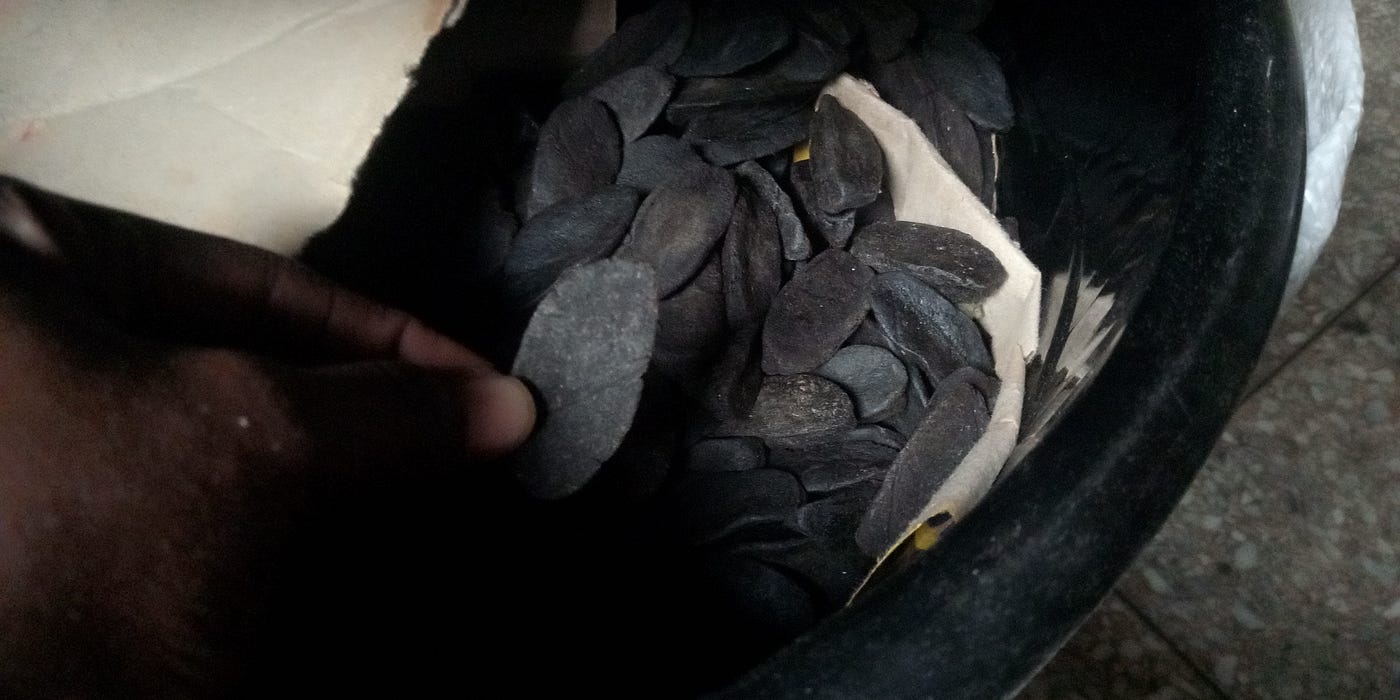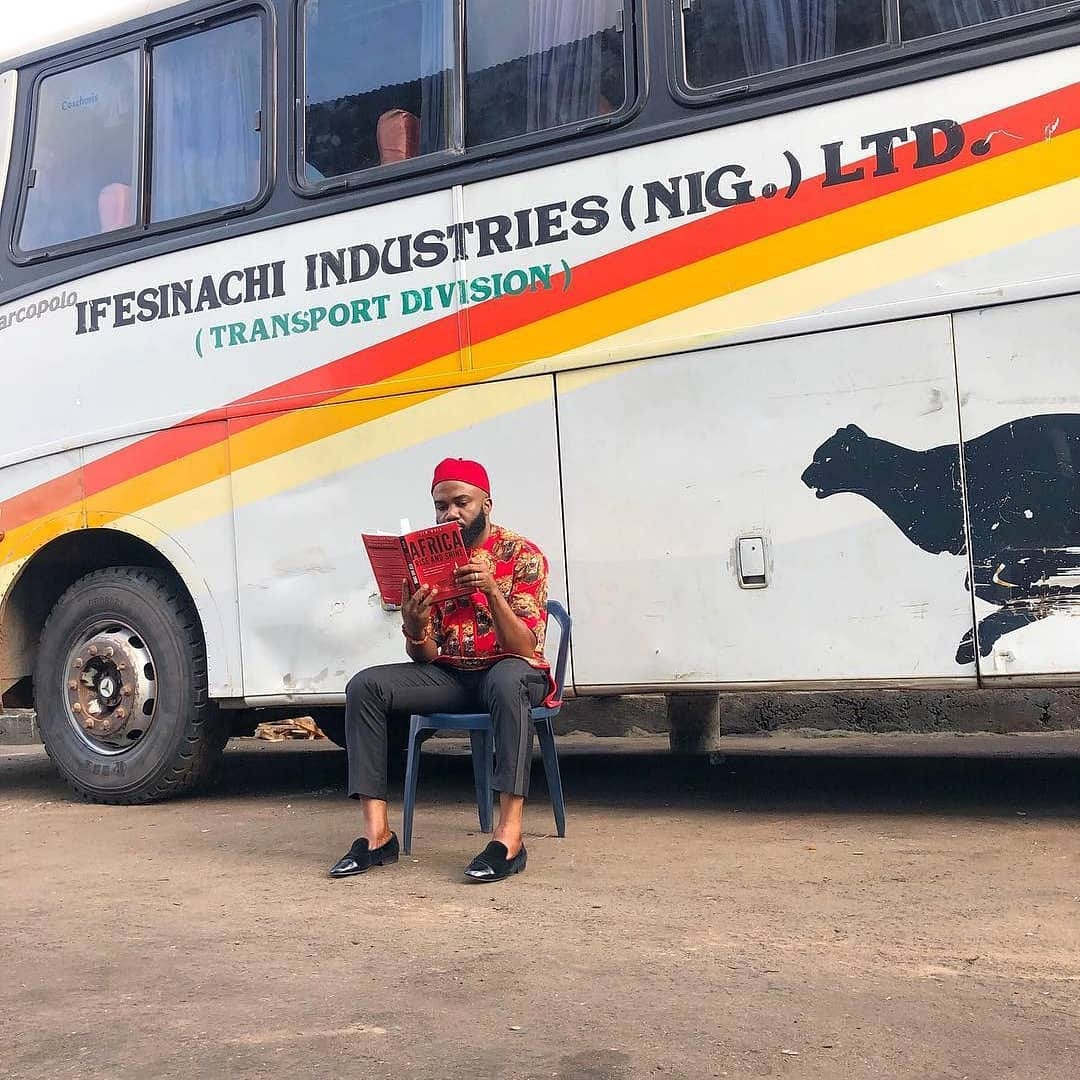A Sample of Family Business Death in Igboland.
My lower middle class family had a tradition of travelling back to Nsukka once in two years during the festive season.
Christmas was more than the birth of Christ. It was a home coming for the Igbo people. In fact, Christmas was made for them.
Families re-united with their kin, cousins met distant cousins for the first time, masquerade festivals and inter-village football league were organised to impress the visitors from towns.

It conveniently presented a chance to show the result of whatever one did in the ‘township’.
Eyes were on the kind of cars the men brought home, the quality of the lace material the women wore, the lushness of their children’s skins and the size of gifts they brought back for the house.
An Igbo proverb says, ‘If a deaf person does not hear the harmattan blowing, will he not feel cold?’ All the forces in the universe endorsed this season.
The harmattan in Lagos was not the same in Nsukka. It had a different smell.
The wind that blew came along with many things. Red dust twirled graciously with the whiff of freshly fermented nkwu ocha. The notorious smell of akpu and okpeye locked up in a pot still found its way to the already saturated air. It is the festive season and so, the dutiful wind also dragged chants from Ikorodo dancers performing in the compound of a big man- crowning you with a dusty nostalgic halo.
That smell was important and I would intermittently stop to take long breaths to relish every moment.

Going back home was as important as the means of going back home. Those who went by road made sure it was safe. My mother would ask a traveller , ‘O chukwu na azo mmadu, (It is God that guides) but I hope you used Ifesinachi?’.
Like she would say ‘O chukwu‘ for making good sales on a particular Saturday, even though every one knew she had the biggest stall in her line.
It was God that saved, but Ifesinachi was compulsory for every traveller in the house.
Ifesinachi was the safe conduit. It was the passage that made dreams. We had learnt of people who took an Ifesinachi night bus to the city with nothing but the clothes on them, but returned in a few years in their own cars.

A story of a man who took the night bus, slept under a Lagos bridge, hustled his way up and in a few years returned home with a flashy car, driving and hooting the horn into the village compound shouting on top of his voice ‘Mama, I’m back’, a sign that he had ‘made it’, might have been a Nollywood cliche, but it was real. Cliches might be stale, but they are important. The stories might have been overflogged, but the virtues of hardwork and success were unhackneyed and fresh. They were the identity of the Igbo. They still are.
My motion sickness while traveling in their luxury bus was one my mother prepared for.
She would carry enough black nylon bags which came in handy when what felt like worms in my stomach revolting against the strong smell of fuel and body heat and the wooziness that came with the swerving of the long vehicle on poorly patched roads, made me hurl undigested food.
Most of the times, the bus jerks made me empty the vomit on her laps rather than the nylon hole her firm hands had held unto.
I remember the grimace on her face, but she would bear it all, and hesitantly let out the word, ’sorry’ while pulling a bottle of water to wash my face.
My motion sickness was momentary, but the feeling of nostalgia was eternal. The name of the bus ignited a deep historical meaning in my guts and I would shout Jinx years later when I would learn that indeed the name and foundation of the transport company had a deep historical meaning for the Igbo people.
Ifesinachi Motors created the allusion of the post Biafran war. I had later learnt that it conveyed the Igbo people with their 911 trucks to other parts of the country to begin anew, to reclaim what had been lost in the 3 years of ravage. Ifesinachi conveying the war-drained, decrepit, burned out Igbo people back to begin life afresh and compete with their aggressors of 3 years was a testament to the Igbo proverb, ‘Anaghi ano ofu ebe ekiri mmanwu’.
Desperate times called for desperate measures and Ifesinachi was the prod. The Igbo who left disparaged with £20, enervated bodies and on their backs, bags full of stereotypes and shame, would return decades after, in now, Ifesinachi ‘luxury’ buses with bigger properties, a striving heart and victory tales.What struck me was that the bus company was not only the ‘destiny helper’ but that it too, stood as a symbol of the Igbo dream. That a destitute who had no western secondary school education would travail life, begin a transport company before the Biafran war, pick up the remains after the war and turn that little dream into a household company decades after, dymstifying affluence.
This was why the decline of the company was like a family relative of mine had died. I had gained an admission to study in the University of Nigeria, Nsukka and by default the transport company to be used was Ifesinachi. The people at the Jibowu, Lagos park were like family. Even the louts had grown some level of familiarity. At the beginning of a new session they would greet me with ‘Holidays don finish?’ and lead my bags to the counter. Emeka was always there to sell tickets and with his very fine English, would indulge me before departure time
I remember when in my third year in the University, Ifesinachi had lost almost all the busses to mismanagement. The few remaining were sure to break down on the road. My mother still insisted that we used the bus, so far it was Ifesinachi. In her words ‘What are you rushing to Lagos to do? Let the bus spoil, but don’t enter Peace.’ Peace was the latest mass transit bus company with new buses.
That early morning, I took a school shuttle to Ifesinachi bus park. The compound had lost its charm. It looked like a shadow of what it did in my childhood years.
They merely operated off the good will they had built in their early years and it was evident in the patronage from the older generation.
There I knew that lessons on family succession was a necessity for all Igbo businesses. It was painful to watch a legacy built through sweat and toil reduce to ruins by a wrong successor.
Ifesinachi was part of my childhood. It was responsible for the good childhood memories created in Nsukka.
Like the name, Ifesinachi, I refused to believe that the destiny of legacies was to end with one successor waking up one morning and deciding to close up business.
Like Henry Ford, I had learnt in History class about his automobile company and the continuity even after over a hundred years. The company went public while the family controled a certain percentage. This way, the death of the company was going to be avoided by an irrational decision on a singular successor.
I had hoped that this too would be applied by my people. I feared that most businesses in Igboland that had started well, may have no legacies with the demise of their founders.
